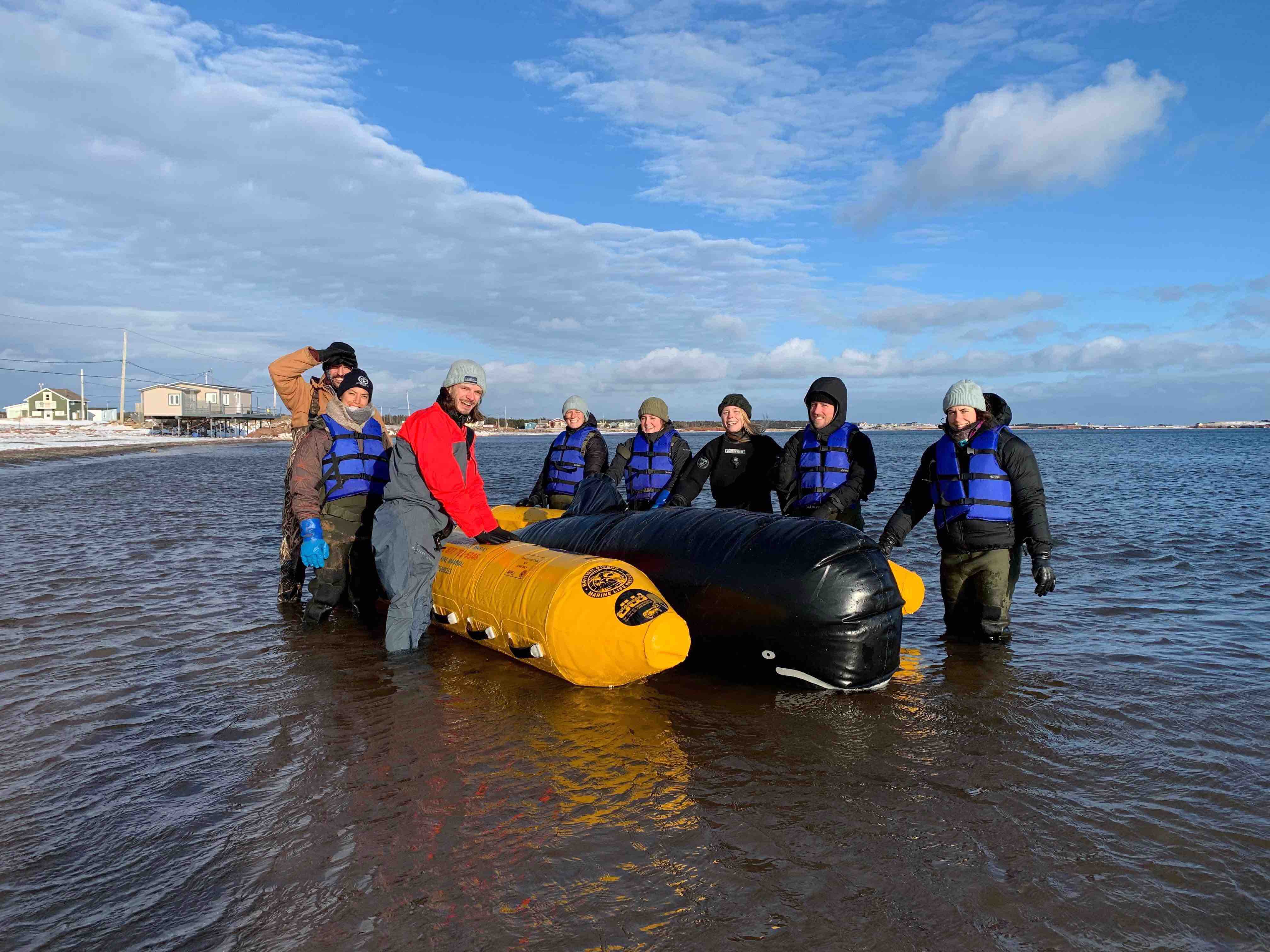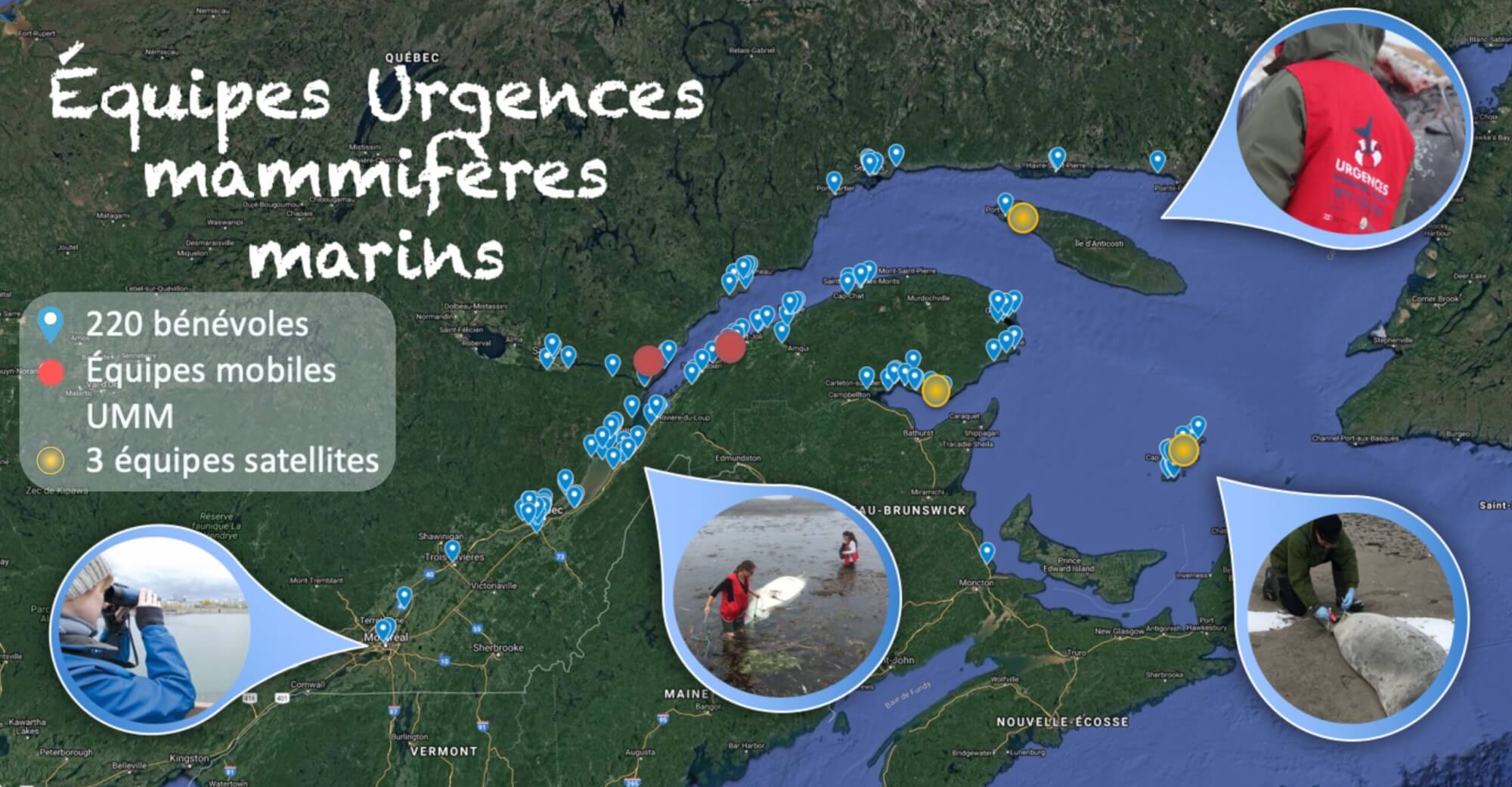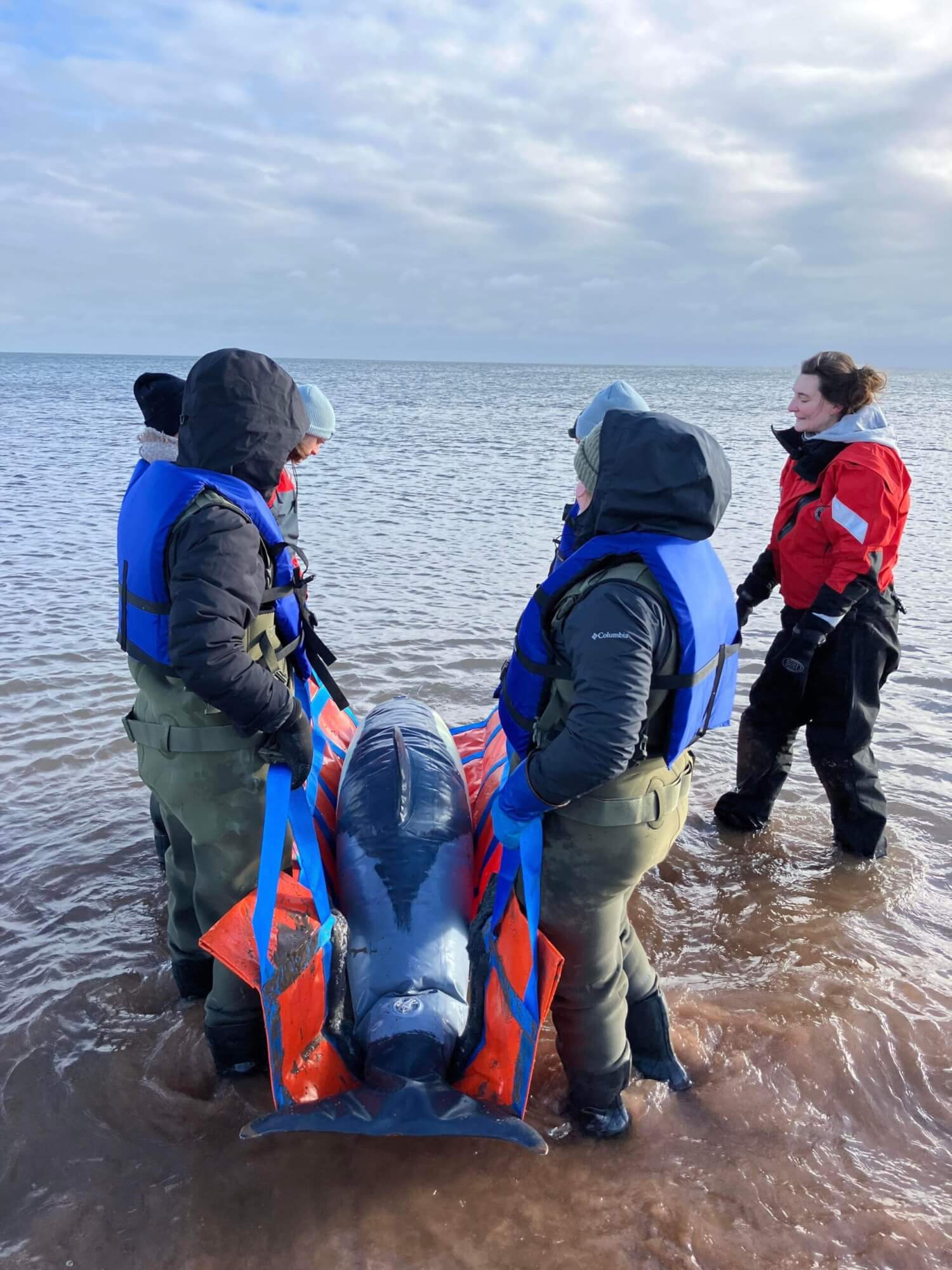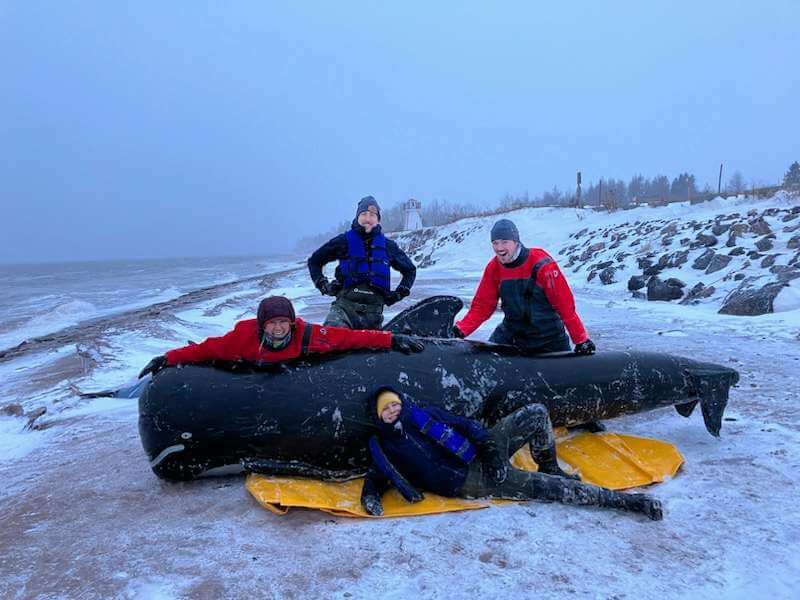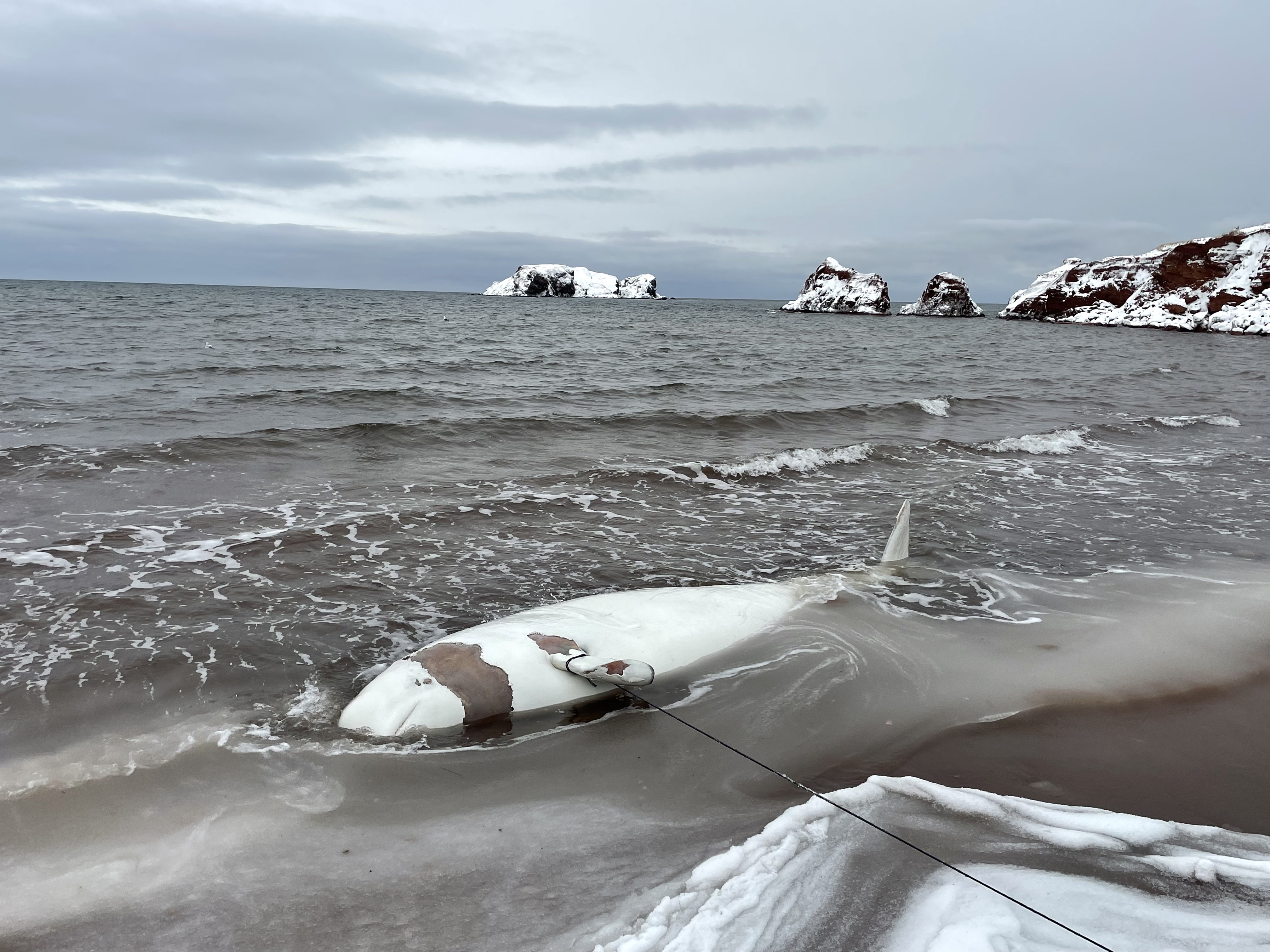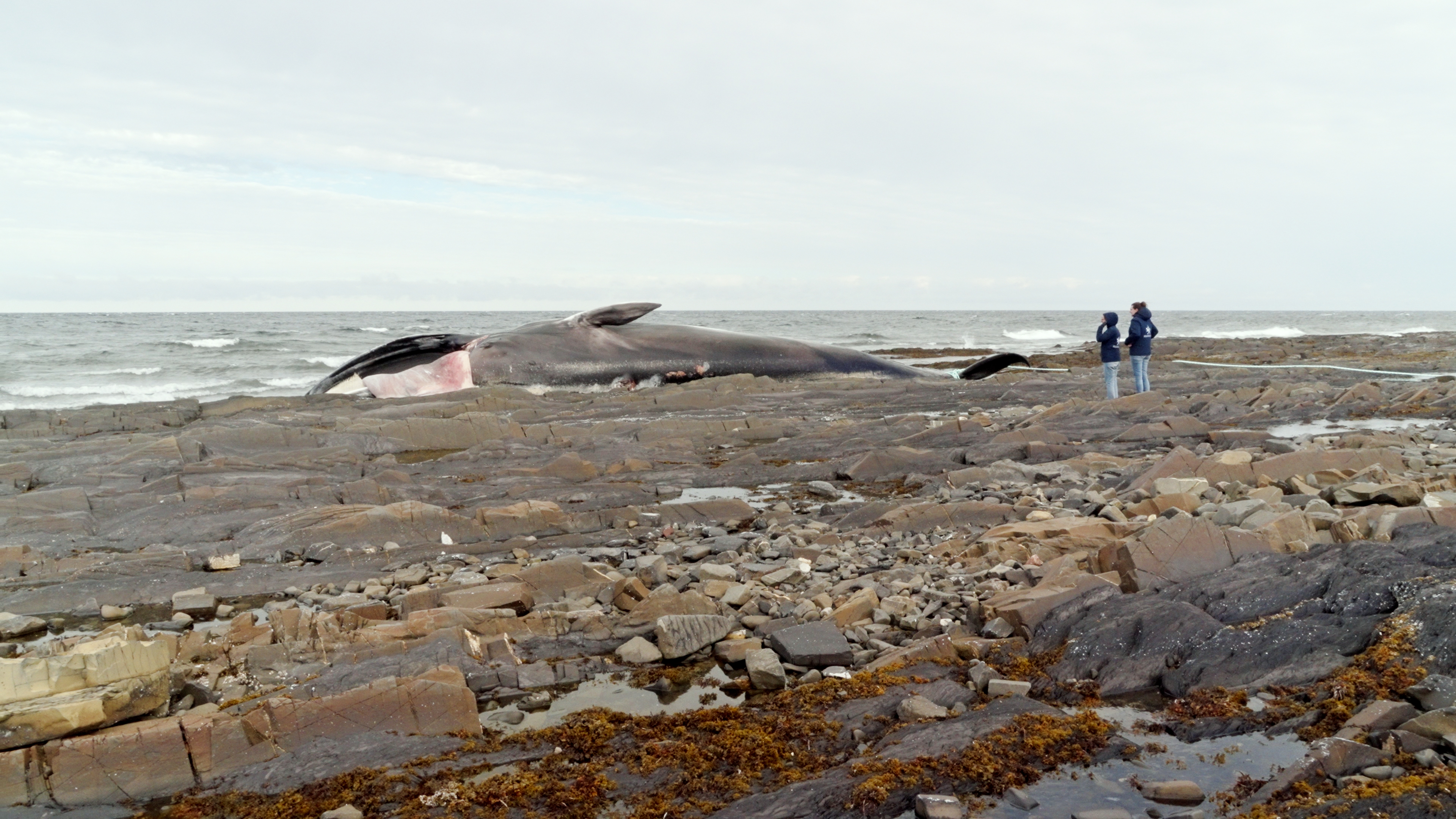With fewer phone calls coming into Marine Mammal Emergencies (UMM) in winter than during the high season, it’s the perfect time for training! Last January, UMM technician Méduline Chailloux left Tadoussac for the Magdalen Islands and Gaspé region to continue training the brand new satellite teams of the Quebec Marine Mammal Emergency Response Network (QMMERN) .
This training allows these teams created in 2023 to intervene in cases involving dead or vulnerable marine mammals on their territory. In addition to QMMERN’s mobile teams based in Tadoussac and Rimouski, the development of satellite teams makes it possible to offer enhanced response to incidents involving cetaceans or pinnipeds. All of which bodes well for data collection and documentation of marine mammals throughout Quebec!
Why create new teams?
Quebec represents an enormous swath of territory to cover for the QMMERN: it’s simply impossible to be everywhere all the time! This is why, since 2012, the QMMERN has developed a broad network of volunteers to help it respond to cases involving marine mammal carcasses or animals that are stranded or in distress.
Whether they’re cetacean enthusiasts, professionals or retirees with extra time on their hands, volunteers are often the first ones on the scene when there’s an incident involving a marine mammal. Thanks to their presence along Quebec’s extensive coastline, they’re a tremendous help to the mobile intervention teams and the QMMERN.
The two mobile teams located on the north and south shores of the St. Lawrence Estuary are made up of technicians. They handle cases that require a higher level of expertise, e.g. returning a stray seal to its normal habitat or transporting a humpback whale carcass. Even if they are supported by volunteers, these teams of professionals cannot travel throughout Quebec. This is where the satellite teams come in!
Who are the satellite teams?
The satellite teams were chosen not only for their keen interest in the conservation of the St. Lawrence, but also for their knowledge of their respective backyards. Two of the three teams are made up of ZIP (zone d’intervention prioritaire) Committees. These committees are non-profit organizations aimed at protecting the coastal environments of the St. Lawrence River and are highly focused on public awareness. The two ZIP Committees forming the satellite teams are those of Magdalen Islands and the Gaspé Peninsula.
Based out of Anticosti Island, one of the longest-standing volunteers acts as the third satellite team in more complex situations. Knowing the island like the back of her hand, she covers the entire island by herself! However, working alone, her response capacity is more limited than her sister teams in the Magdalen Islands and Gaspésie, and her role is mainly limited to in-depth sampling. Given the challenge of the significant distance separating Anticosti Island from the mobile teams, her contribution is essential!
What do satellite teams do?
Satellite teams provide a great deal of additional support to mobile teams. They mainly deal with cases involving beached carcasses in their regions. Thanks to the support of the Marine Mammal Response Program of Fisheries and Oceans Canada, Marine Mammal Emergencies was able to acquire the necessary equipment to equip and train satellite teams to carry out documentation, sampling and carcass recovery. This material is also used to respond to marine mammals in distress. Coordinated responses throughout Quebec translate into a better overview of marine mammal strandings and incidents while providing managers and scientists with valuable data on cetacean and pinniped populations.
Each intervention is unique, complex and represents significant logistics over a huge territory. Furthermore, the weight of carcasses should not be underestimated! Every year, over 70 marine mammal carcasses in good condition are sent for analysis to QMMERN’s partner, Université de Montréal’s Faculty of Veterinary Medicine (FMV) in Saint-Hyacinthe. For cases of live stranded marine mammals, satellite teams are dispatched to support the mobile teams.
The development of these teams and their autonomy will allow for a more coordinated response across Quebec. This will result in improved response capacity and continued data collection to advance conservation work with marine mammals, particularly species at risk.


